John Williams: Details Behind Creating a Score, the Magic Dust of Star Wars
Earlier this week Rian Johnson and John Williams took to social media to share a special message on May the 4th. With the score near completion, Williams is currently working feverishly to put the final touches on the next chapter in the Star Wars saga, The Last Jedi. Most of us don’t know the process of what goes in to a scoring a film, but we’re in luck, because Finalmusic.com offered up some details on how the master develops his scores.
Joann Kane Music has earned their stripes being attached to blockbuster films such as The Hobbit, Frozen, The Maze Runner, the Star Wars classics and many more. Working behind the scenes with composers, arrangers, opera, jazz, and popular singers and songwriters, the company offers a wide range of music services that include preparation of scores and parts, audio take-downs, midi transcriptions, and proofreading.
FinaleMusic.com recently caught up with Mark Graham, the owner of Joann Kane Music to talk about working along-side legendary composer John Williams, and shared some details on his company’s involvement with the Star Wars films. Mark also offered up a little insight on Williams’ work on Star Wars and how the master creates a score..
Final Music: What Star Wars films have you been involved with?
Joann Kane Music: I worked on the three prequels, Episode VII, and we’re just finishing up on Episode VIII now.
FM: Can you describe your workflow on these films?
JKM: John William writes very detailed handwritten sketches. On the prequels, these sketches went to orchestrators. The orchestrators would write pencil scores and we would copy parts into Finale.
But for the past six or seven years, John has just sent the sketches directly to us. We put them straight into Finale. I’ve kind of edited them, checked them out myself, and then we’ve used them at the stage for recording.
FM: Is there much in the way of back and forth or does he trust that you know what he wants?
JKM: Well, I would say it’s a relationship based on twenty years of pretty much full-time activity and a lot of trust. He’s very careful with the way he writes his sketches. Obviously, when we input them into Finale scores, we’re very respectful of that. He uses several forms of shorthand, but we’re accustomed to the way that works, and know what to look for.
The only thing I would say that we sometimes have to deal with is the woodwinds, in term of assigning particular instruments. Often I have to make a decision on instruments to cue in case he might want more sound in a particular place.
We’ve got it down to a well-established practice now because we’ve been doing it for so long. I’ve been at all of the recording sessions since 1998, so I have a very good sense of how he works as I’m always there. Once he sends the sketches to us, it’s only very rarely that he’ll want to look at the score.
FM: So the first time he sees the score is at the recording session?
JKM: Typically, John will work from his sketches and look at the score every now and then if there’s an issue we need to work out, in terms of balance or something like that. For this reason, I’m very near the podium during the sessions, and I have a set of his sketches and a set of the scores we’ve prepared that the engineer uses to mix with.
FM: Can you share a sense of what it feels like at the sessions? Is it tense?
JKM: No, it absolutely is not tense. Many recording sessions can be very tense and tempers can get frayed and there can be an atmosphere sometimes, but his sessions, I would say that they’re very business-like. He can lighten things up with humor, but he can be very demanding on an orchestra as he has very high standards. He’s got a vast amount of experience and he doesn’t waste any time.
He’s always prepared. We start right at ten o’clock. There’s no speeches or chat or “Is this ready?” or “Is that ready?” The musicians know exactly the order of the cues we’re going to play that particular day. We typically post difficult music online for them to look at ahead of time if we can, so they have a sense of that. The principal string players will have a sense of how it’s going to be bowed and all the rest of it, and then we move on really quickly.
We can typically record comfortably over twenty minutes in a day, which is a lot for epic film scores like these, and we’ll be done without overtime. But that’s because he’s so efficient and everything is well prepared and thought out.
FM: Do you ever see clues in the music that reveal upcoming plot twists?
JKM: Yes – often. And the people here are very sensitive to that. We’ve got to be careful. There can be a big reveal either with some text in the cue or with thematic material which indicates the appearance or disappearance of a character.FM: As a fan, I think it would be tough if you were working on the project and had a reveal like that.
JKM: Yes. People here are interested. I can remember at the end of one of the prequel movies, we were saying goodbye to George Lucas and my colleague at the stage asked him about one of the characters. And George was very surprised to get this question – I would say taken aback – and said, “Well, how did you know about that?” And my colleague explained his thought process on this character.
George listened to this and then gave a big explanation of how this character was going to be very present in the next movie. And it was quite interesting to hear that whole thought process, which was all worked out, and of course, we hadn’t seen any of it yet because they hadn’t even shot the film. But obviously, it was coming. And my colleague had worked it out in advance and then a couple of years later, we saw all the evidence of that in the film.
FM: The Force Awakens was recorded in the U.S., right?
JKM: Yes, and Episode VIII was also recorded in the U.S.
The three prequel films, Episodes I, II, and III, and were all done with the LSO at Abbey Road. I think IV and V were done at Denham, an old film studio in London, but that’s before my time.
Interesting enough, we’re recreating those first scores right now for some concerts with the New York Philharmonic in September. We’re going to do the first three films and “The Force Awakens” in concert over a period of about two weeks, with two shows for each film or something like that. And that’s been a very interesting project to put together.
FM: Are efforts made to make it sound like the earlier recordings?
JKM: No. They want to make this music that he’s written now as good as it can be. I mean, that’s the whole thing. Mr. Williams is not a person to kind of rest on his laurels. He’ll want to constantly improve both in terms of performances and what he thinks he can do in terms of writing thematic material slightly differently, orchestrating slightly differently, working on the performances just to really fine tune stuff.
FM: To close, is there something that I haven’t asked about that I should have?
JKM: I don’t know – people get very excited about Star Wars material. When you hear some of these beautiful themes played, 30 or 40 years later, with these musicians here in L.A., I think there’s a big feeling of… I don’t want to say reverence exactly, but certainly a massive feeling of respect toward that music and towards making it sound really good. It’s become a cultural icon like it or not, and I think people really want to be a part of that, and really want to do well in their contribution
This includes the engineers, stage crew, the musicians and all of the people at my office. We work really hard on this stuff. And the production team as well – the people who mix it and everything, they really want to make it great. They know a lot of people are going to listen to it for a long time.
Many of the people are working on music that’s been part of their lives for most of their lives.
Oh, no doubt. It’s remarkable.
Sometimes I see footage and I try to imagine it without this particular music. Obviously, it could be done with a different approach, but John’s music has been the language of these films and is a very big part of it.
FM: Thank you for your time today.
JKM: My pleasure. I’m not a person who gives a lot of interviews, but I understand that this is interesting to people. And Finale, using your software has been a big part of this. All the Star Wars films we’ve done have been prepared with it and it’s very handy to do this stuff digitally and to have very clear and accurate parts on the music stands. Finale has been a great tool for that. You can talk yourselves up a bit for that – It has been a good thing for us to use it.
People might not immediately understand that in the early films the performers were actually reading from handwritten parts.
Oh, yeah. We’ve got some handwritten material from the very first film. And when we look at how we’re doing that material now, it’s very nice and clear for people to read from. Put it like that.
You can read the entire interview here.
As George Lucas has said time and time again, John Williams’ scores are the lifeblood of Star Wars, and music will always be the magic dust of movies.
May the force be with you….
Thanks to Alex Fraser for the heads up.

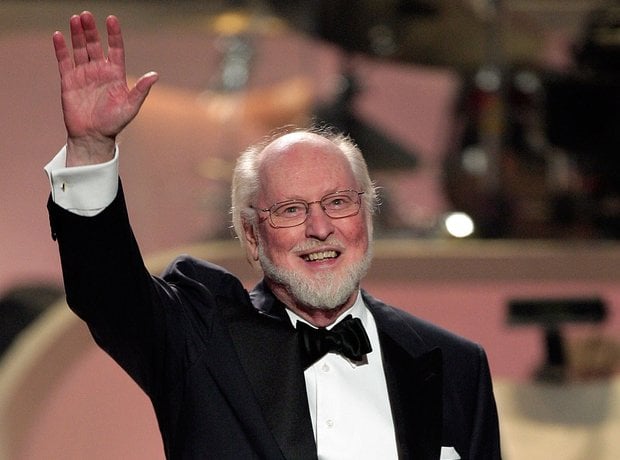
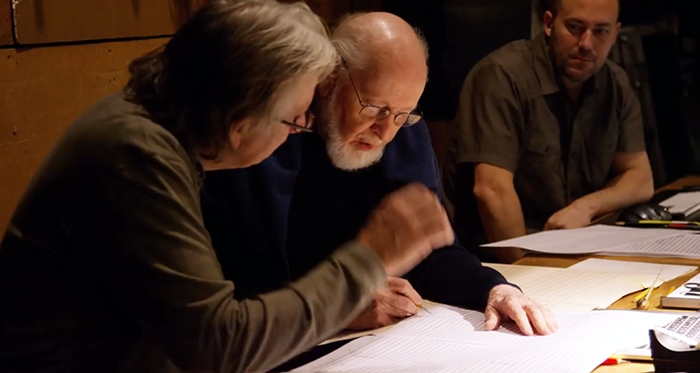
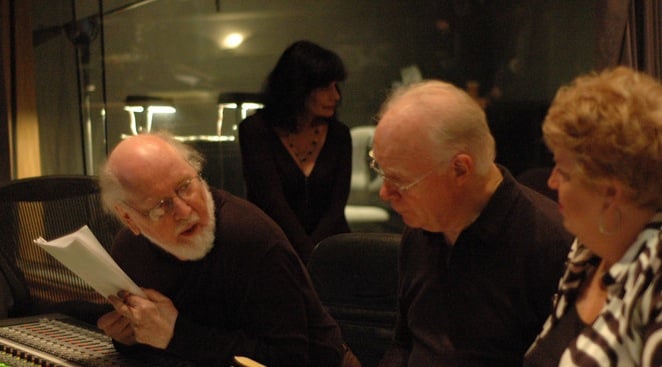
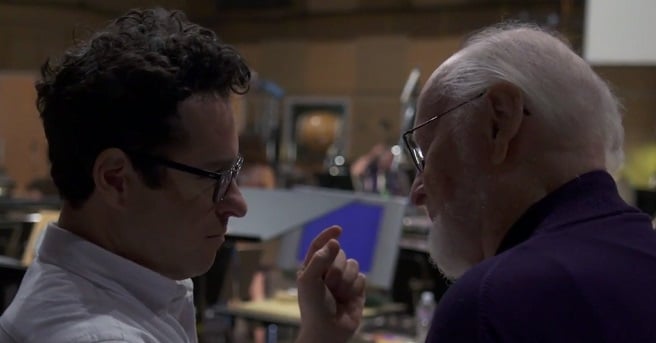
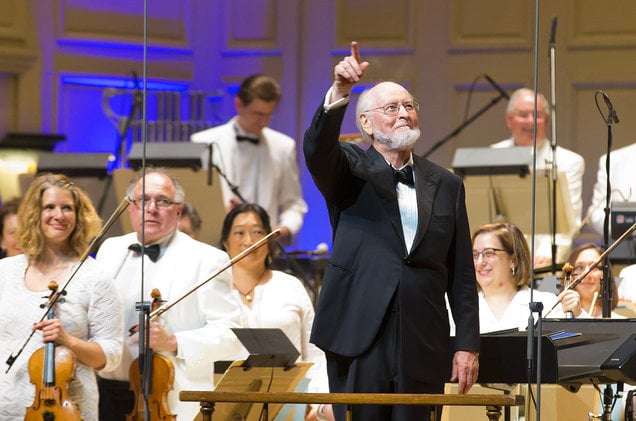
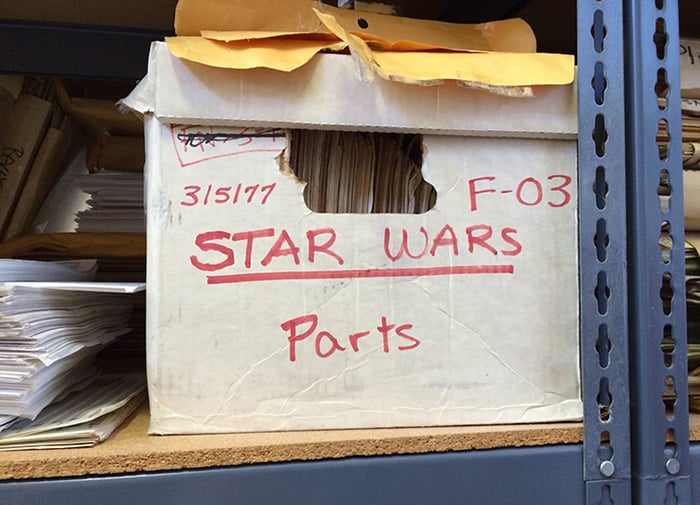
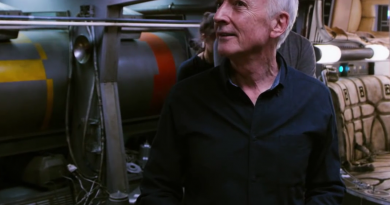
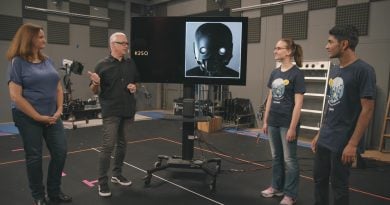
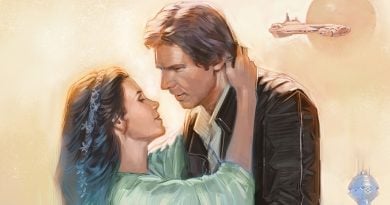
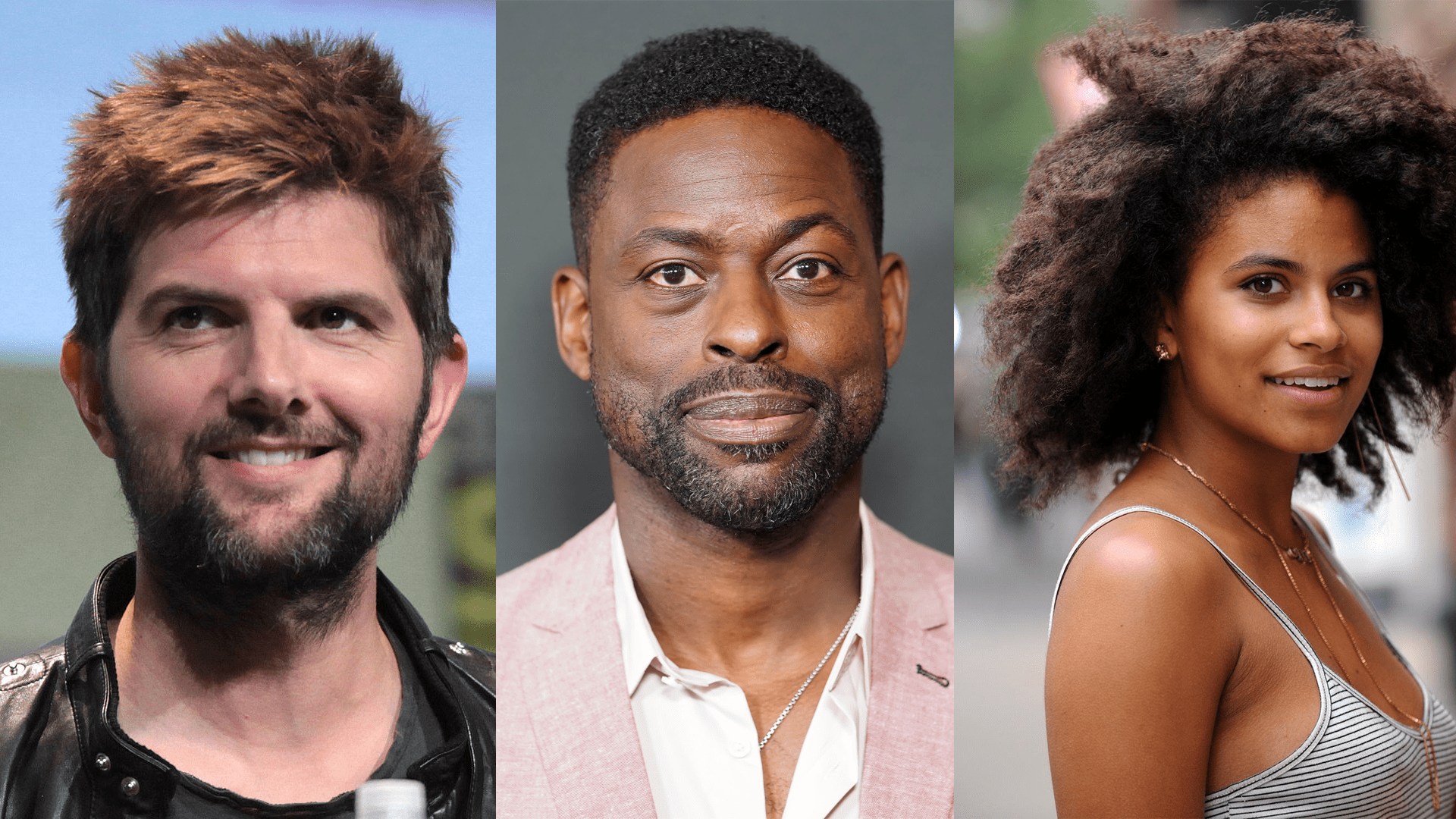
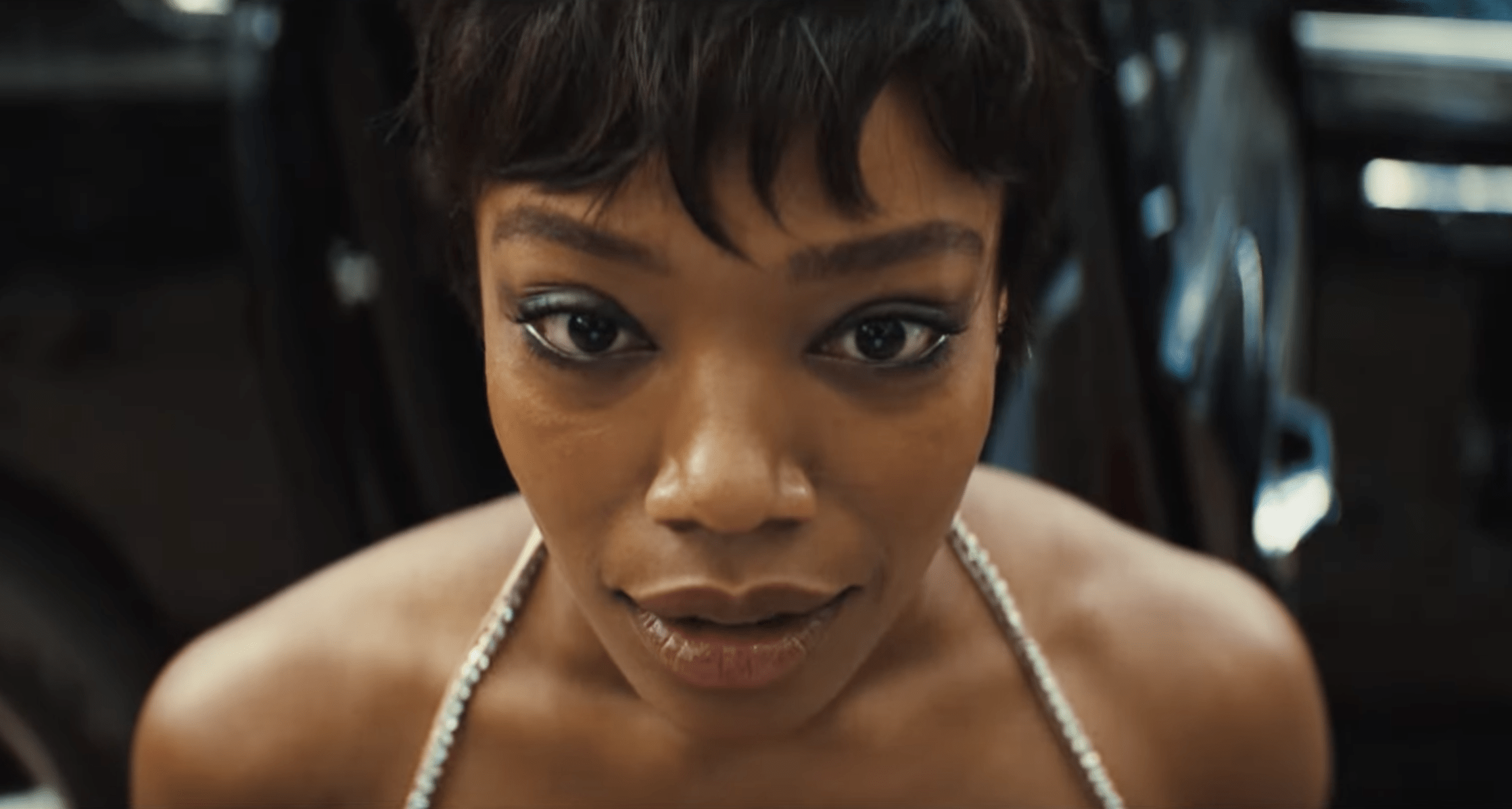

A very insightful read.
Who’s John William?
I think the lack of LSO in the Disney films is a major reason why they lack iconic status despite being done by two of my favorite composers.
There is some difference between orchestras, that’s for sure. But that statement is wrong. Classical music composers’ works aren’t worse if performed by worse orchestras. As for film acores, I think Williams lived up enough to his previous scores. I personally heard in TFA that same orchestration style. As for Giacchino, I noticed he’s not that original, especially when he has to compose so-called “emotional” scores. R1 had a score that had a very similar arrangement to williams’, but just as Giacchino did with Jurassic World, he started composing his own thing after a bit. That said, the R1 score was better than the JW one, in the portions written in Giacchino’s own style.
Highly subjective.
So JW isn’t using the LSO in VIII either? Damn. As much as I love the composition of the VII score, I felt there was something “missing” and I think it was coming from the orchestra itself. No one plays better than the LSO, they’re like the top league so not having them involved anymore is a little sad. I suppose it’s hard for someone over 85 to fly to London and stay there for weeks to record music and it’d be really expensive to fly out an entire orchestra from London to LA.
I think a big part of it actually comes down to the timing of it all. With the other SW films, Williams was able to compose most of the music before the final edit was locked it (or even in some cases before principal photography was finished). Meaning the edits were dictated largely on Williams music, or in other words: the music came first. Then the edit. However, with TFA, Williams had to sync his music to the edit, or in other words: the edit came first.
Understanding this, it makes sense why TFA soundtrack felt a little “off”. It was because Williams actually didn’t have as much creative freedom compared to the other SW films, and was forced into specific timecodes and hit points.
This is why I’m super excited TLJ has almost finished the score, meaning Johnson wants to edit the film to the score instead of the other way around like TFA. This leads me to think TLJ will have a better, more fluid soundtrack.
People complained about the score being hacked up before, especially AOTC.
As an musician, it is great to get a sense of what goes on during scoring. It blows my mind that the composition process involves so many people, and that the longstanding working relationship between JW and JKM has allowed them to be flexible and to expedite the process. As for some of the other comments here about orchestration, yes, it does make a difference in the tone of the recording, but they are still playing the same composition at an incredibly high skill level.
The fifth o Beethoven, VIII movement
Williams should not be doing the score, he is well past his prime and his last decent work would have been Last Crusade in 89. Everything he has done subsequent is uninspiring and boring. I get being loyal..to a point.. But it is detrimental to the film(s)..
But duel of the fates.
Jurassic Park, Harry Potter, and the Star Wars prequels all had pretty darn memorable music and he won an Oscar, a BAFTA, and a Grammy for Schindler’s List.